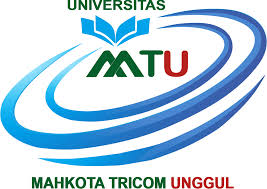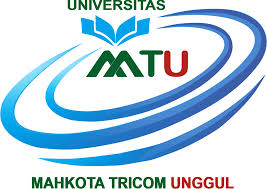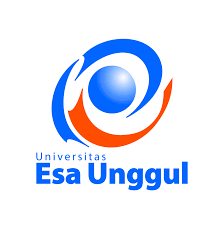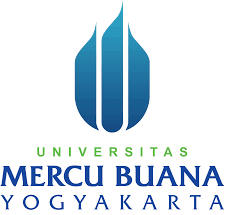Study of the Low Visit of Mothers of Toddlers of the Damal Tribe to the Agikemok and Nella Posyandu in the Working Area of the Kwamki Narama Health Center, Mimika Regency, Central Papua
DOI:
https://doi.org/10.55927/fjst.v4i9.221Keywords:
Integrated Health Post, Damal Tribe, Community Participation, Toddler Health, Central PapuaAbstract
This study examines the low attendance of mothers of toddlers from the Damal Tribe at the Agikemok and Nella Posyandu under the Kwamki Narama Health Center, Mimika Regency, Central Papua. Using a qualitative case study with 16 informants, the research found a decline in participation between 2023 and 2024. Five main themes emerged: inconsistent attendance, limited socio-cultural influence, economic barriers, suboptimal support from health workers due to inadequate facilities, and generally positive but insufficient community perceptions. The study concludes that economic constraints, infrastructure limitations, and lack of family support are the main causes of low participation. Strengthening Posyandu facilities, empowering community leaders, and developing sustainable, locally based programs are recommended.
References
Anderson, R. M. (1995). Revisiting the behavioral model and access to medical care: Does it matter? Journal of Health and Social Behavior, 36(1), 1-10.
Dina, P., Hasibuan, R., & Gurning, F. P. (2025). Strategi peningkatan partisipasi ibu balita ke Posyandu dengan analisis SWOT di wilayah kerja Puskesmas Belawan. Jurnal Pengabdian Masyarakat Bangsa, 10(1), 0-13.
Fachirunisa, P. N., Elvandari, M., Tri Wahju, S., Islam Kurniansyah, F., Studi Ilmu Gizi, P., Kesehatan, F., Singaperbangsa Karawang, U., Pacar Keling, P., & Kesehatan Kota Surabaya, D. (2024). Sosialisasi demo masak PMT untuk balita gizi kurang dan ibu hamil KEK kepada kader Posyandu di wilayah Puskesmas Pacar Keling. Journal of Human and Education, 4(3), 577-584.
Green, L. W., & Kreuter, M. W. (2005). Health program planning: An educational and ecological approach (4th ed.). McGraw-Hill.
Grossman, M. (1972). On the concept of health capital and the demand for health. Journal of Political Economy, 80(2), 223-255.
Kemenkes RI. (2022). Profil kesehatan Indonesia 2021. Pusdatin Kemenkes RI.
Lassa, F., Sinaga, M., & Takaeb, A. E. L. (2021). Relationship between family support and cadres with mother activity weighing toddler. Timorese Journal of Public Health, 3(3), 93-102.
Majidah, N. M., Sulistiyawati, S., & Paramashanti, B. A. (2021). Effect of maternal nutrition education on knowledge, attitude, and practice related to infant and toddler feeding. Nutri-Sains: Jurnal Gizi, Pangan dan Aplikasinya, 5(2), 73-82.
Nazri, C., Yamazaki, C., Kameo, S., Herawati, D. M. D., Sekarwana, N., Raksanagara, A., & Koyama, H. (2016). Factors influencing mother's participation in Posyandu for improving nutritional status of children under-five in Aceh Utara district, Aceh province, Indonesia. BMC Public Health, 16(1), 1-9.
Rogers, E. M. (1962). Diffusion of innovations. Free Press.
Rosenstock, I. M. (1966). Why people use health services. The Milbank Memorial Fund Quarterly, 44(3), 94-127.
Rukmana, E., Fransiari, M. E., Damanik, K. Y., & Nurfazriah, L. R. (2024). Differences in knowledge of Posyandu cadres and mothers of toddlers regarding stunting and its association with stunting incidence in toddlers. Amerta Nutrition, 8(3SP), 61-70.
Sugiyono, S. (2018). Metode penelitian pendidikan pendekatan kualitatif, kuantitatif dan R & D (4th ed.). Alfabeta.
Supri, A., & Zulfira, R. (2024). Faktor yang mempengaruhi kunjungan balita di Posyandu. Journal of Nursing AACENDIKIA, 3(1), 5-13.
Tiyas, D. W. (2024). Peningkatan partisipasi kunjungan Posyandu balita melalui penguatan dukungan mitra. Jurnal Pengabdian Masyarakat Bangsa, 1(11), 3052-3056.
Downloads
Published
Issue
Section
License
Copyright (c) 2025 Veronika Dogopia, Arius Togodly, Rosmin M. Tingginehe, Agus Zainuri, Sarce Makaba, Novita Medyati

This work is licensed under a Creative Commons Attribution 4.0 International License.


































